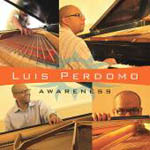Home » Jazz Articles » Multiple Reviews » Cross-Over Fever: Tony Bennett's Proteges; Gladys Knight's Mentors
Cross-Over Fever: Tony Bennett's Proteges; Gladys Knight's Mentors
You do not 'cover' the music of Gershwin, Cole Porter, Harold Arlen and Duke Ellington. You 'interpret' it.
A common theme running through these latest two ventures and those before them is betrayed by that overused, increasingly bankrupt word: cover. Reviewers are as prone to praise an artist for doing a song that hasn't been "covered" recently as they are to pour abuse on the performer who resurrects material that has already received widespread "coverage." Let's get one thing straight: You do not "cover" the music of Gershwin, Cole Porter, Harold Arlen and Duke Ellington. You "interpret" it. There is nothing inherently limiting about these songs that should reflect negatively or positively on the artist who selects from this repertory. The nearly 2000 recorded versions of "Body And Soul" need be no deterrent to the next tenor saxophonist who wishes to weigh in on the tune. Tony Bennett
Tony Bennett
Duets: An American Classic
Sony
2006
Tony Bennett remains in good voice, up to the standards of his recent, Grammy Award nominated The Art Of Romance (Sony, 2004). In fact, one could hardly blame him if he took umbrage at being marketed as an "American Classic." (Aren't such things decided by the public? Or are the promoters banking on an 80th birthday as reason enough?) Unlike the two Sinatra Duets sessions (Capitol, 1993, 1994) which, however commercially successful, were artistic insults to serious Sinatraphiles, Bennett has the advantage of singing right alongside his musical companions—in fact, on most of the tracks he rises above them.
The Dixie Chicks help get the proceedings off to a perky start, supporting Bennett with an Andrews Sisters impersonation on Harry Warren's "Lullaby Of Broadway," and Barbra Streisand follows up by joining Bennett on a version of Charlie Chaplin's "Smile" that stops just short of smarminess. But the next two contributions— by James Taylor and Billy Joel—are innocuous if not anonymous, neither performer from either duo benefiting from the shared experience. The choice of the Columbian pop star Juanes as Bennett's duet partner for the next track, Johnny Mandel's "The Shadow Of Your Smile," may have cross-cultural and cross-generational significance, but listeners with long memories are given no reason not to regret the absence of an Astrud Gilberto or Jack Jones, both of whom have done greater justice by this song in particular.
With the next two tracks, Elton John ("Rags To Riches") and Paul McCartney ("The Very Thought Of You"), matters deteriorate further, both performers at least injecting a trace of (inappropriate) British music-hall "vigor" into songs that were threatening to sink under the weight of their own string-heavy, suffocating orchestrations. Fortunately, the album concludes on a triumphant note as the sterling vocal quality and empathetic support of George Michael on Michel Legrand's potentially meandering song, "How Do You Keep The Music Playing?," inspires Bennett to turn in a reading arguably eclipsing his solo performance of the tune (The Art Of Excellence, Sony, 1986).
In sum, Bennett's Duets album is musically more satisfying than Sinatra's two late offerings, but probably not sufficiently so to merit many replays. Moreover, unlike Sinatra, who had a long list of recorded masterpieces in his discography (above all, the Capitol "concept" albums with Nelson Riddle), Bennett can hardly afford to be overly casual about his lasting legacy. For anyone "new" to this American Classic, the best advice is to pass up this latest recording and go directly to the Bennett sessions with Bill Evans—both of them (Fantasy, Remastered edition, 2006; Concord, 2003).
 Gladys Knight
Gladys Knight
Before Me
Verve
2006
Gladys Knight is also in excellent voice (and not simply "for her years"), exchanging some of her customary grit and earthiness for a smoother, sultrier, more lustrous sound. Certainly, if energy and enthusiasm, sincerity and abundant good will count for much, she deserves high marks for her commanding, irrepressible performance on this collection of resilient standards.
But if the album is really meant to bring attention to some noteworthy predecessors and mentors (the reason I would assume it's entitled Before Me rather than "After Them"), it does so through a full-bored, theatrical approach that, however winsome, is considerably wide of the mark. Singing this material is as much about knowing what to leave out as what to include. Perhaps Ethel Merman and performers of her ilk could get away with a broad and bombastic treatment of these tunes, but not the singers—from Crosby and Sinatra to Holiday and Fitzgerald—who immortalized them.
Diana Ross came much closer to capturing Holiday's phrasing, drama and musical language on the release earlier this year of Blue (Motown, 2006) than Knight does on the present tribute. Not only does she steamroller over the Holiday songs, but the arrangements ("God Bless The Child" done as a driving 12/4 tune? "The Man I Love" with a bossa nova beat?) are tailored to her broad theatrics. Unlike Ross, Knight either hasn't done her homework or, like many present-day listeners, simply can't "hear" or relate to Lady Day's music.
Knight's gratuitous, "smiling" spoken asides on "Good Morning Heartache," or her giggle on "The Man I Love," betrays a lack of understanding of the poetry and emotion— albeit often sad, bitter, and discomfiting—of a Billie Holiday interpretation. But it was the latter's way of telling a song's story—inhabiting its drama so completely that every nuance and irony came alive—that, as Old Blue Eyes himself acknowledged, led him to the truly timeless art of the Sinatra-Riddle Capitol ballad albums.
Knight's strengths are the Dinah Washington "power songs" (though even here Washington's earthy, blues-based delivery is transformed into something better described as "ebullient soul") and the material that calls for the special brand of exuberance and "good news" that distinguishes great gospel music. Her tribute to Mahalia Jackson on Duke Ellington's "Come Sunday," insures that this session, like Bennett's, saves the best for last. Not that any of the performances is unpleasant—there's plenty of sunshine to light up every song. It's just that Knight is inevitably served unevenly by the comparisons that a tribute album such as this is bound to provoke.
On the other hand, the thought of Billie Holiday or Ella Fitzgerald trying to sing (cover?) a soul classic like Knight & The Pips' "Best Thing That Ever Happened To Me" should send a shudder through us all (though Fitzgerald, a trouper like Knight, would no doubt have given it her best shot).
Tracks and Personnel
Duets: An American Classic
Tracks: Lullaby Of Broadway; Smile; Put On A Happy Face; The Very Thought Of You; The Shadow Of Your Smile; Rags To Riches; The Good Life; Cold, Cold Heart; If I Ruled The World; The Best Is Yet To Come; For Once In My Life; Are You Havin' Any Fun?; Because Of You; Just In Time; The Boulevard Of Broken Dreams; I Wanna Be Around; Sing, You Sinners; I Left My Heart In San Francisco; How Do You Keep The Music Playing?
Personnel: Phil Ramone: producer; Jorge Calandrelli: arranger; Tony Bennett, Dixie Chicks, Barbra Streisand, James Taylor, Billy Joel, Juanes, Elton John, Paul McCartney, Tim McGraw, Celine Dion, Diana Krall, Stevie Wonder, Elvis Costello, k. d. lang, Michael Buble, Sting, Bono, John Legend, George Michael: vocals.
Before Me
Tracks: Do Nothing Til You Hear From Me; The Man I Love; Good Morning Heartache; Since I Fell For You; God Bless The Child; This Bitter Earth; I Got It Bad (And That Ain't Good); Someone To Watch Over Me; But Not For Me; I'll Be Seeing You; Stormy Weather; Come Sunday.
Personnel: Phil Ramone, Tommy LiPuma: producers; John Clayton, Billy Childs: arrangers; Gladys Knight: vocals; Clayton/Hamilton Jazz Orchestra; Russell Malone: guitar; Anthony Wilson: guitar; David "Fathead" Newman: tenor sax; Joe Sample: keyboards; Roy Hargrove: trumpet; Chris Botti: trumpet.
Tags
PREVIOUS / NEXT
Support All About Jazz
 All About Jazz has been a pillar of jazz since 1995, championing it as an art form and, more importantly, supporting the musicians who make it. Our enduring commitment has made "AAJ" one of the most culturally important websites of its kind, read by hundreds of thousands of fans, musicians and industry figures every month.
All About Jazz has been a pillar of jazz since 1995, championing it as an art form and, more importantly, supporting the musicians who make it. Our enduring commitment has made "AAJ" one of the most culturally important websites of its kind, read by hundreds of thousands of fans, musicians and industry figures every month.



















